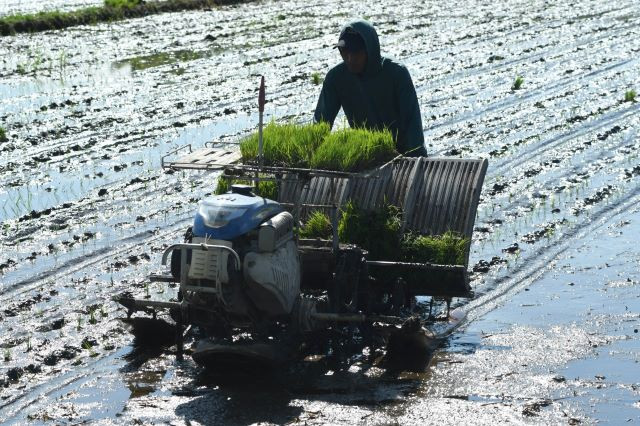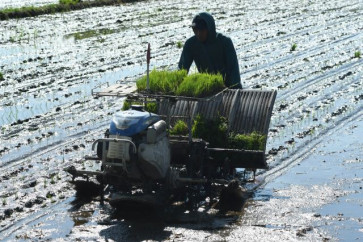Popular Reads
Top Results
Can't find what you're looking for?
View all search resultsPopular Reads
Top Results
Can't find what you're looking for?
View all search resultsRisks to smallholders must be prioritized in DEFA negotiations
As ASEAN sets out to mark a new era through its recently opened negotiations on the DEFA, agritech must be part of the core focus so smallholder farmers can both benefit from and contribute to a sector that is instrumental to the region's economies.
Change text size
Gift Premium Articles
to Anyone
T
he ASEAN Economic Community (AEC) officially kicked off multilateral negotiations for a regional Digital Economy Framework Agreement (DEFA) early this month.
The DEFA will be ASEAN's new free trade agreement (FTA) that focuses on enhancing digital economic cooperation among member states through the adoption and entrenchment of digital commerce, e-commerce and innovation.
Expected to conclude in 2025, the DEFA negotiations not only mark a new era for ASEAN regional economic cooperation, but are also expected to produce a framework that binds all member states. Such a concerted effort is a breakthrough for the 10-nation bloc, whose members still seek political and economic independence.
A Boston Consulting Group study forecasts that ASEAN's digital economy will organically triple from US$300 billion in 2021 to $1 trillion by 2030, potentially reaching $2 trillion with the DEFA in place.
This economic expansion would partly result from the DEFA helping companies to achieve lower operating as well as compliance costs, allowing them to comply with only one set of regulations instead of those of 10 individual ASEAN markets. Such enablement is expected to spur increased foreign direct investment (FDI) in the region.
While the private sector in ASEAN begins to offer its ideas and perspectives to the AEC’s Negotiations Committee on an effective DEFA, it is also imperative to consider the potential impact of the agreement on key sectors like agriculture.
The agriculture sector, while instrumental to ASEAN economies, lags in adopting advanced technology, such as automated machinery, leaving workers vulnerable to a digital shift.



















